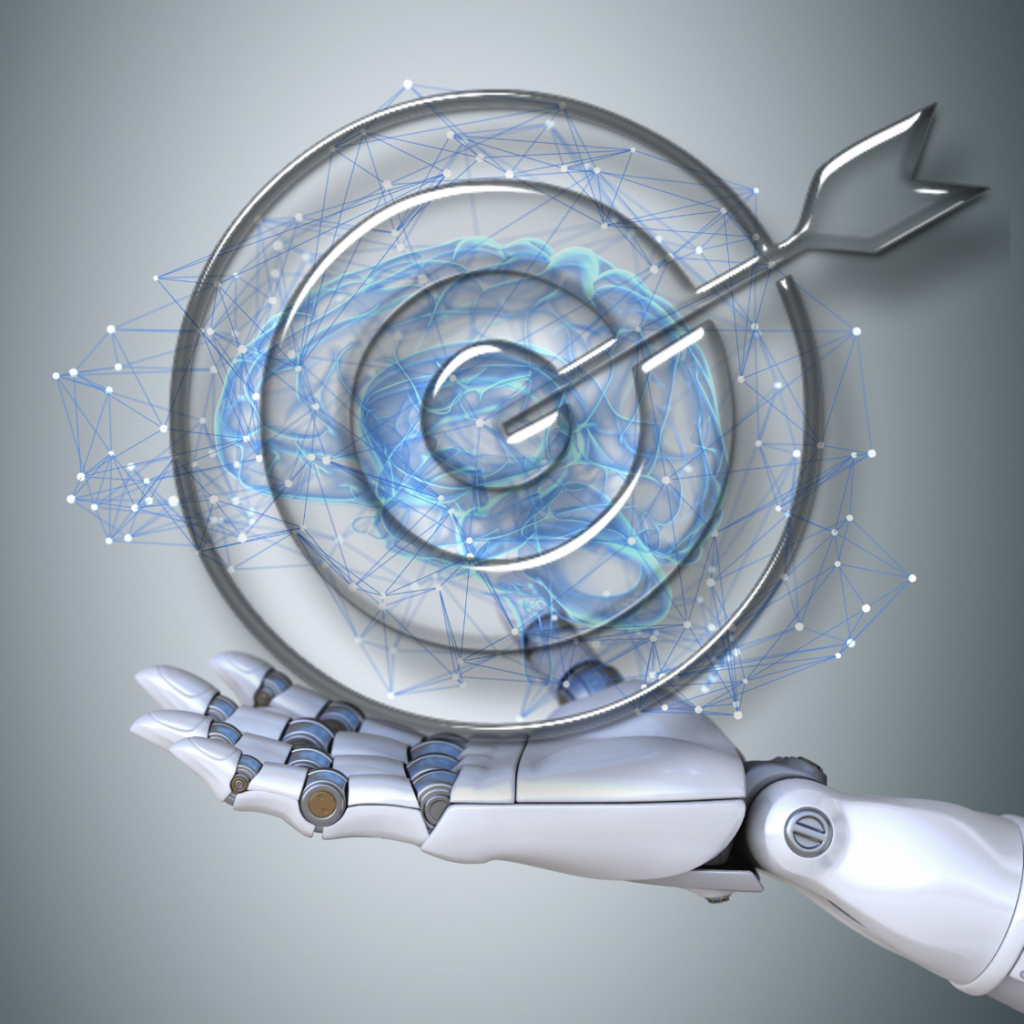By now most people understand they generate data whenever they use their computer, tablet, or smartphone. They also understand companies use that data to advance their commercial interests (either by selling the data or using it for targeted marketing campaigns). “Consider all the information about your likes, dislikes, wants, needs, and behavior that are out in the world,” writes Jeff Beer (@jeffcbeer). “Whether it’s Facebook, Twitter, apps, games, or any other digital interaction, it amounts to a giant pile of data just about you. So, in this world of big data and targeted advertising, why do you still see diaper ads when you don’t have a baby?”[1] Beer is just one of the growing number of people who believe cognitive computing (a type of artificial intelligence) can help improve targeted marketing campaigns. AJ Agrawal, a self-proclaimed serial entrepreneur and marketer, adds, “As a marketing professional, you can’t afford to overlook the power of artificial intelligence. Not only is this the wave of the future, but it’s the ‘here and now’ in many ways. You can either embrace it or act like it doesn’t exist (I don’t suggest this). Now’s the time to double down on artificial intelligence, as this will give you a head start on the competition.”[2] Karola Karlson (@KarolaKarlson), a performance marketing manager, echoes those sentiments. “Every day your team postpones using innovative AI-powered solutions in your content marketing,” she writes, “you’re losing competitive edge.”[3]
The Benefits of AI in Targeted Marketing
Before discussing some of the benefits of leveraging AI for targeted marketing, I’d like to touch on some of the compelling reasons Agrawal provides for his assertion that marketers can’t afford to ignore artificial intelligence. First, Agrawal observes that social media and artificial intelligence are fellow travelers in the marketing arena. “From customer information gathering to content curation, artificial intelligence is the name of the game,” he writes. “It can save you time. It can save you money. And best yet, it can help you achieve greater results.” The next compelling reason suggested by Agrawal is the fact that artificial intelligence platforms leverage advanced analytics — specifically, predictive analytics. He explains, “Predictive analytics can help you better understand what your audience is looking for, as to provide them with more accurate information, products, and services. Forget about guessing or relying solely on instinct to make key business decisions. Artificial intelligence will take all the guess work out of the equation. … The end result is simple: a more targeted marketing strategy.” His third argument is basically: “Everybody else is going to use AI and, to remain competitive, you must as well.” He observes, “There is no stopping the growth, so you have two choices: get on board with the idea that AI will change the way you market your business or let the competition pass you by.” His final argument is a corollary to his last point. “Regardless of your industry, company size, or marketing strategy, one thing will never change: there will always be competition. If you want to remain at the forefront of your industry — at least as far as your marketing strategy is concerned — you’ll want to double down (and then some) on artificial intelligence.”
If you think Agrawal’s arguments amount to little more than a jump-on-the-bandwagon plea, Karlson offers some tangible benefits for hopping on the bandwagon. She asserts, “AI has paved its way deeper into marketing, helping brands to enhance every step of the customer journey.” To support her assertion, she consulted with Markus Lippus, chief technology officer at MindTitan. They came up with “eight ways to leverage AI to beat (or at least compete with) your content marketing competition.” They are:
1. AI-enhanced Pay-Per-Click advertising. “Most pay-per-click ad campaigns are managed by either in-house teams or a PPC agency. In other words, humans. But AI can help you uncover new advertising channels that may not be used by your competition.”
2. Highly personalized website experience and better Conversion Rate Optimization. “The 2017 Real-Time Personalization Survey by Evergage notes that 33% of marketers surveyed use AI to deliver personalized web experiences. When asked about the benefits of AI-powered personalization, 63% of respondents mentioned increased conversion rates and 61% noted improved customer experiences.”
3. AI-powered content creation. “Natural-language generation holds tremendous potential in making the work of content creators more efficient. By 2018, Gartner predicts, 20% of all business content will be authored by machines.”
4. Content-creation chatbots. “If you’ve recently chatted online with a customer service rep, your helpful correspondent named Ashley or Jen might have held a little secret – she’s a bot. From fashion to health to insurance, intelligent chatbots are providing borderline magic customer support. And in some cases, they’re better at creating personalized content than humans.”
5. Intelligent email content curation. “Algorithms can map a subscriber’s website experience and email browsing data to understand all the individual’s interactions with your content. This knowledge allows the algorithm to identify hyper-contextual content to create one-on-one personalized emails.”
6. Churn prediction and smart customer engagement. “Machine-learning algorithms also can help identify disengaged customer segments that are about to churn or leave for a competitor. AI-powered tools in this category can help gather data, build a predictive model, and test and validate that model on real customers. That information can indicate what stage of churning the person is in. While quick-churn customers (users who abandon a product shortly after starting to use it) are difficult to re-engage, late-churn customers (those who have a long-lasting relationship with your brand) can be incentivized to keep using your product.”
7. AI-powered customer insights. “Where it would take humans an immense amount of time to crunch all the numbers and match them to customer’s behavioral patterns, AI can give marketing insights on the fly.”
8. Automated image recognition. “In recent years, software has become superhuman at recognizing people, with accuracy exceeding 99%. Big brands like Amazon, Facebook, and Pinterest are using AI-powered image recognition to identify people and objects from images and videos. … From a marketer’s standpoint, image recognition could mean a better sync between online content and store visits. Many stores use facial recognition software to trace customers’ in-store visits and link these videos to their customers’ profiles.”
Agrawal concludes, “If you consider yourself a growth marketer, you know that artificial intelligence can help you reach all your goals.”
Summary
Karlson strongly recommends marketers “look for opportunities, from automated content curation to personalization, where AI can make the biggest impact and result in the highest ROI.” To discover those opportunities, she suggests making sure your data is sufficient for the algorithms to learn from and, she warns, avoid being too aggressive with personalization (i.e., don’t get creepy). She adds, “You’ve been affected by AI in your content marketing for years, now it’s time to intentionally apply additional AI products to deliver personalized experiences and beat your competition.” Jason Jercinovic (@jjercino), global head of marketing innovation at Havas, told Beer, “The demographics that put people in a nice little bucket is gone. You need to treat people differently. We’re all chasing this goal of one-to-one segmentation on an individual level, we’re not there yet, but getting closer.” Artificial intelligence can help you find the right balance between useful personalization and over-the-line creepiness.
Footnotes
[1] Jeff Beer, “How Artificial Intelligence Is Helping Brands Create Ads Just For You,” Fast Company, 25 May 2016.
[2] AJ Agrawal, “Why Marketers Need To Double Down On Artificial Intelligence,” Forbes, 9 August 2017.
[3] Karola Karlson, “8 Ways Intelligent Marketers Use Artificial Intelligence,” Content Marketing Institute, 13 August 2017.





